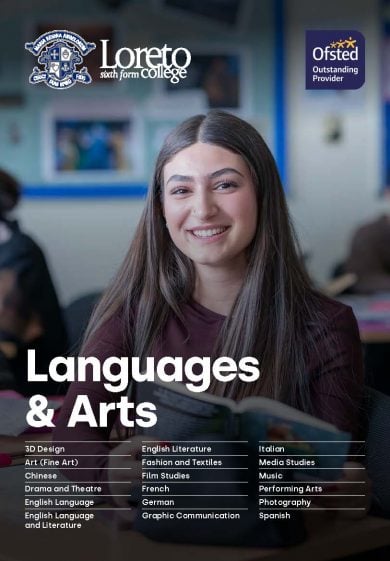Entry Requirements
Click the button to read our faculty brochure or read more about the course below:
- Six GCSEs 9-4 (or A*-C)
- Two from English, Maths OR Science
- Two at least grade 6
Course specific requirements: Chinese GCSE grade 9-7 OR native speakers of Chinese on consultation with the department at enrolment.

A Level Chinese (Mandarin/Cantonese)
- Do you want to unlock the door to one of the most widely spoken languages in the world?
- Are you excited about immersing yourself in the vibrant Chinese traditions, literature, and contemporary society?
A Level Chinese offers students a rich and comprehensive insight into the social, political, intellectual, and artistic culture of the countries and communities where Chinese is spoken. Students will develop their knowledge and understanding through speaking, listening, reading and writing in Chinese.
Languages are a brilliant skill to possess. A language is a skill for life. Both universities and employers are keen to enlist linguists.
Exam board: PEARSON
Themes covered
Paper 1: Listening, reading and translation
Percentage of total marks: 40%
Method of assessment: Written exam 2 hours
This paper draws on vocabulary and structures across all four themes.
Themes are based on the society and culture of Chinese-speaking countries
Paper 2: Written response to works and translation
Percentage of total marks: 30%
Method of assessment: Written exam 2hrs 40 minutes
This paper requires students to translate a previously unseen passage from English into Chinese.
This paper also draws on the study of two discrete Chinese works: either two literary texts, or one literary text and one film.
Paper 3: Speaking
Percentage of total marks: 30%
Method of assessment: Oral exam
Students will be assessed on their ability to use a range of language accurately, communicate and interact effectively, summarise and analyse findings from written sources relating to their research subject, and show knowledge and understanding about the society and culture of the Chinese-speaking world.
Skills
Alongside developing analytical and interpretative skills, you will improve your communication skills and your ability to understand literature and grammar.
You will develop control of the language system to convey meaning, using spoken and written skills, including an extended range of vocabulary, for both practical and intellectual purposes as increasingly confident, accurate and independent users of the language.
You will develop knowledge about matters central to the society and culture, past and present, of the country or countries where the language is spoken
Course introduction
MFL
How many lessons are there per week?
There are 2 double lessons. You will get homework from each lesson and over the week you are also expected to do another 4.5 hours of independent study in order to practice further and develop your own interests in aspects of the culture of the language you study. This will help with your studies in the second year.
How much homework will we get?
Homework is set twice a week after each lesson. This may involve vocabulary learning, reading tasks, listening tasks, translation, grammar tasks, essay work or speaking preparation. Typically, you will get one learning homework and one written homework per week. Homework is usually due for the next lesson unless you are told otherwise.
Do you run any trips abroad?
Yes we do! we have cultural trips to Italy, Spain, France and China and our German exchange. The department also offers work experience in Europe through an external company.
Which exam board do you use?
Our exam boards are:
• Eduqas: French, German and Spanish
• Edexcel: Italian and Chinese
• AQA: Chinese GCSE
How do we learn in lessons? Is it really different to high school?
We do not use a set textbook as these quickly go out of date. Instead, we use a variety of resources such as self-made booklets containing resources from a variety of places to help you learn in different ways. You will be given vocabulary lists, translation, grammar, reading and listening tasks as booklets. Every week you will also work with computers for listening tasks, grammar practice and independent learning. We use websites such as Kahoot and Quizlet to practice vocabulary, grammar and factual knowledge.
How do we work with the assistant?
To help you develop speaking skills, we employ a native-speaker of the language you study, who will work with you once a week during lesson time. They will speak to you individually in a separate classroom on a specific topic for up to 10 minutes. Usually you will prepare something in advance for homework and speak to her about it during the session. You can expect to be asked questions about what you have said. This all helps to build confidence for the final speaking exam.
What kind of person takes a Language A-level and what use is studying a language?
Languages are a brilliant skill to possess. A language is a skill for life. Both universities and employers are keen to enlist linguists.
What other subjects do languages complement?
A foreign language goes well with any other subject. Arts subjects like other languages but also English, History or Politics. Many of our students also study Maths and Science subjects.

